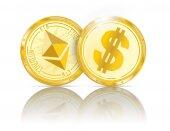Can Stock Prediction Methods Be Useful? Or Are They Just Guesswork?

Ah, the age-old question that has puzzled investors for centuries: can we really predict the future of the stock market? The answer iscomplicated. Sort of like trying to predict the weather in Florida - sunny one minute, hurricane the next.
Stock prediction methods are like a toolbox filled with all sorts of fancy tools. Some are shiny and new, others are rusty and old. And just like tools, some work better than others depending on the job.
Let's dive into the nitty-gritty and explore some of the most popular stock prediction methods out there:
1. Technical Analysis: Reading the Tea Leaves
Think of technical analysis as the stock market's version of tea leaf reading. It's all about studying the past behavior of stock prices, volume, and other technical indicators to try and predict future trends.
Like a seasoned tea leaf interpreter, technical analysts pore over charts and graphs, searching for patterns and clues that might indicate where the market is headed. Some rely on old-school methods like candlestick charts, while others embrace cutting-edge algorithms.
Pros:
1. It's based on historical data, so there's a track record to analyze.
2. It can be relatively simple to learn and apply.
3. It can provide insights into short-term market movements.
Cons:
1. It assumes that past behavior will continue in the future (which may not always be true).
2. It can be subjective, as different analysts may interpret the same data differently.
3. It doesn't consider fundamental factors that could affect stock prices.
2. Fundamental Analysis: Digging Deep into the Company
This method focuses on the underlying fundamentals of a company, such as its financial performance, management team, and industry outlook. Fundamental analysts are like investigative journalists, digging deep into a company's financial statements and news releases to assess its true worth.
They believe that a company's intrinsic value is reflected in its stock price, and that by understanding the company's fundamentals, they can make informed predictions about its future performance.
Pros:
1. It provides a more comprehensive understanding of a company.
2. It can identify undervalued or overvalued stocks.
3. It helps investors make long-term investment decisions.
Cons:
1. It requires a lot of research and expertise to do well.
2. It can be difficult to accurately predict future earnings and other fundamental factors.
3. It doesn't always capture short-term market fluctuations.
3. Sentiment Analysis: Gauging Market Mood
Sentiment analysis dives into the collective emotions of the investing public. It analyzes social media posts, news articles, and other forms of online chatter to gauge the overall market sentiment.
The idea is that if a lot of people are feeling bullish or bearish, that sentiment can influence the direction of the market. Sentiment analysts are like social media detectives, monitoring the pulse of the investment community to spot trends and predict market behavior.
Pros:
1. It can capture market sentiment that may not be reflected in traditional data.
2. It can identify potential turning points in the market.
3. It can be a complementary tool to other prediction methods.
Cons:
1. It can be noisy and difficult to interpret accurately.
2. It may not be reliable in all market conditions.
3. It can be biased towards the loudest voices in the online community.
4. Machine Learning and AI: Unleashing the Algorithms
Machine learning and artificial intelligence (AI) have entered the stock prediction game like modern-day market wizards. These methods use complex algorithms to crunch through vast amounts of data, identifying patterns and making predictions.
They're like the Wall Street superheroes, analyzing everything from historical stock prices to financial news to social media trends. The goal is to create models that can make accurate predictions based on the data, without human bias.
Pros:
1. They can process vast amounts of data quickly and efficiently.
2. They can uncover hidden patterns and relationships that humans may miss.
3. They can be trained to adapt to changing market conditions.
Cons:
1. They can be complex to develop and implement.
2. They require large amounts of data to train effectively.
3. They may not be interpretable, making it difficult to understand why they make their predictions.
5. Behavioral Finance: Understanding the Human Factor
Behavioral finance studies the impact of human psychology on financial markets. It's based on the idea that investors are often irrational and their decisions are influenced by emotions, biases, and cognitive limitations.
Behavioral finance practitioners are like financial psychologists, delving into the minds of investors to understand how they make decisions and how those decisions affect the market. They use insights from behavioral psychology to predict market behavior and identify opportunities.
Pros:
1. It provides a deeper understanding of investor behavior.
2. It can help explain market anomalies and bubbles.
3. It can help investors make more rational investment decisions.
Cons:
1. It's difficult to predict human behavior accurately.
2. It may not always be applicable to all market conditions.
3. It can be challenging to implement behavioral insights into investment strategies.
The Verdict: A Mix and Match Approach
So, after all this analysis, do stock prediction methods actually work? The answer isyes and no.
No single method is perfect, and there's no magic crystal ball that can predict the future with 100% accuracy. But when used together, different prediction methods can provide a more comprehensive view of the market and increase the chances of making informed investment decisions.
It's like having a toolbox of wrenches, screwdrivers, and hammers - each tool has its own purpose, and you need to choose the right one for the job.
So, embrace the uncertainty, enjoy the roller coaster ride, and have a little fun along the way. The stock market is like a giant puzzle, and we're all just trying to put the pieces together.
Interactive Question:
What's your favorite stock prediction method? Share your thoughts and experiences in the comments below!
Please indicate:COINLIVEBASE » Can Stock Prediction Methods Be Useful? Or Are They Just Guesswork?